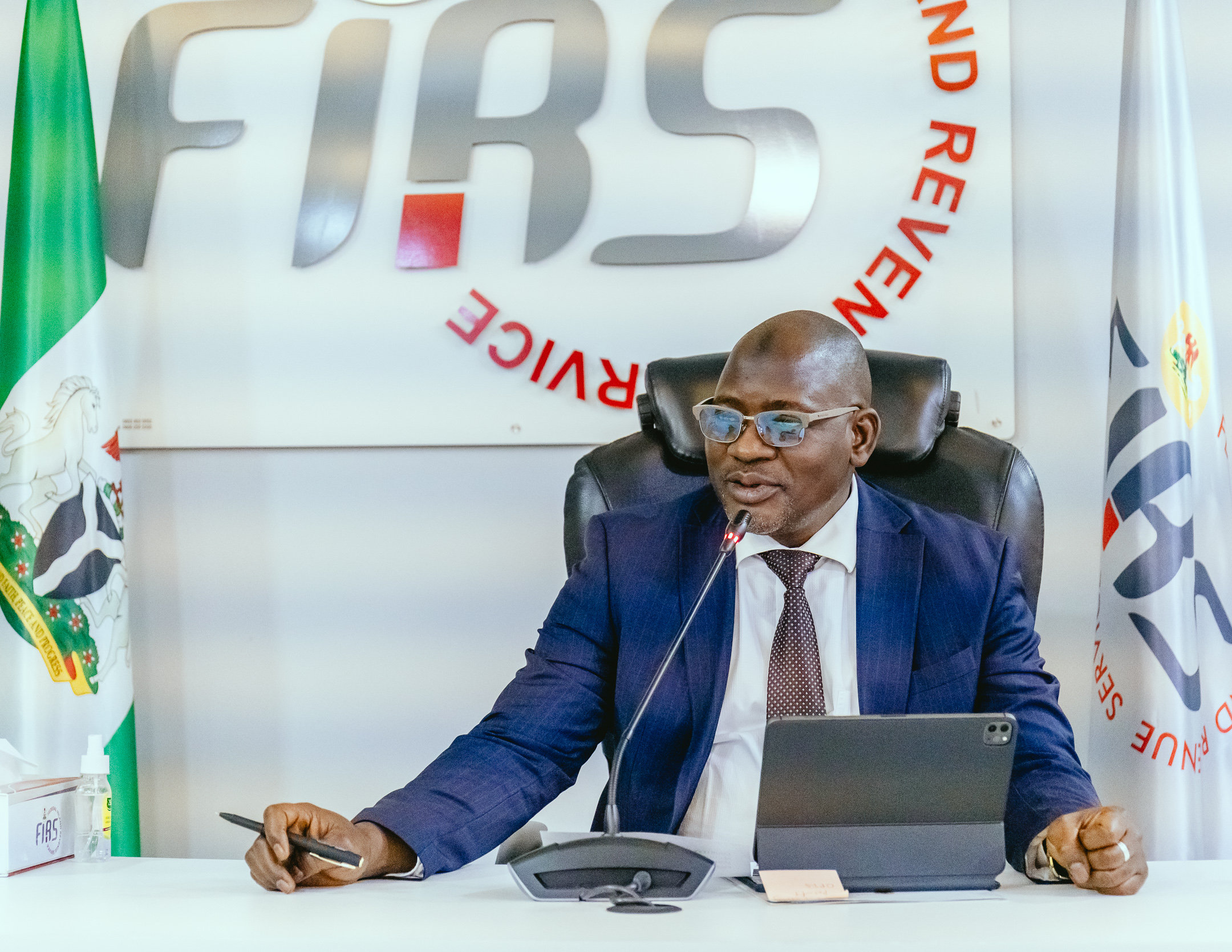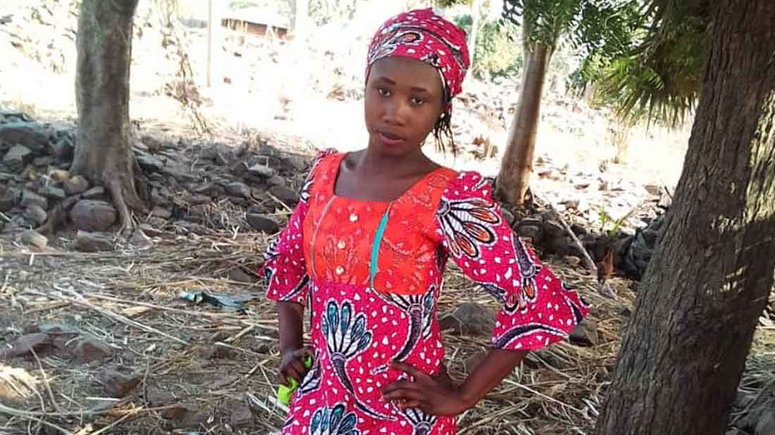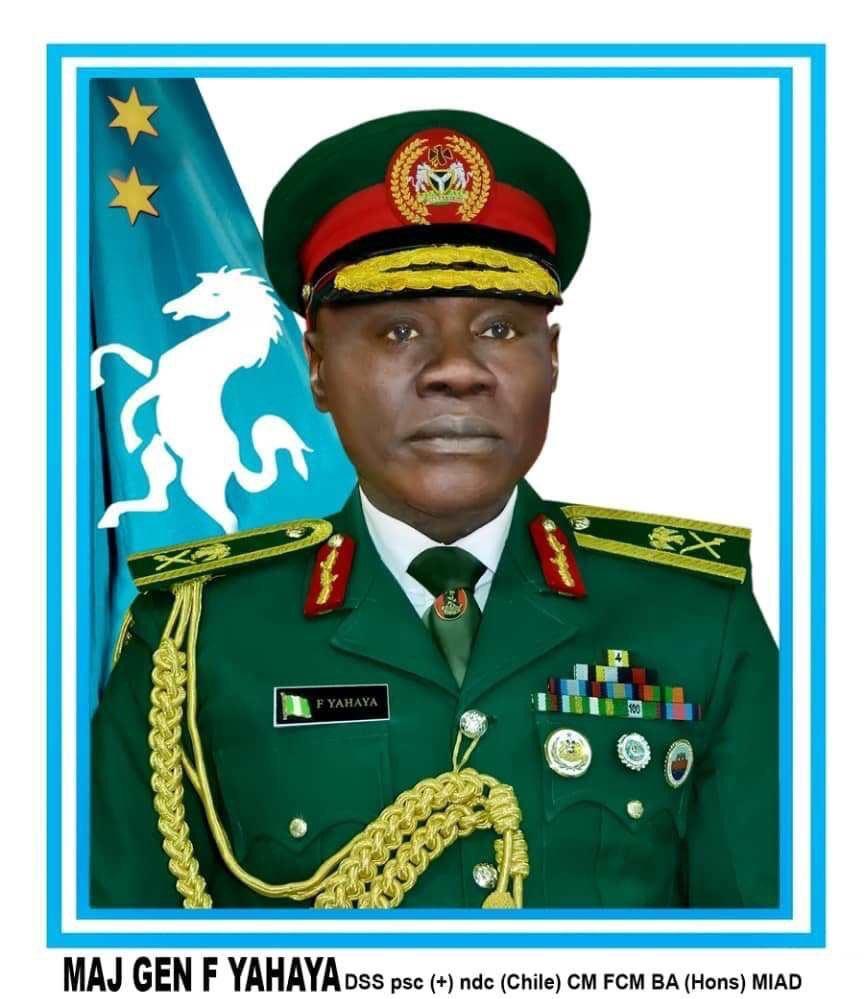In spite of rising Insecurity, Unemployment in Nigeria: an NGO is Supporting Internally Displaced women with Soft, Hard Skills
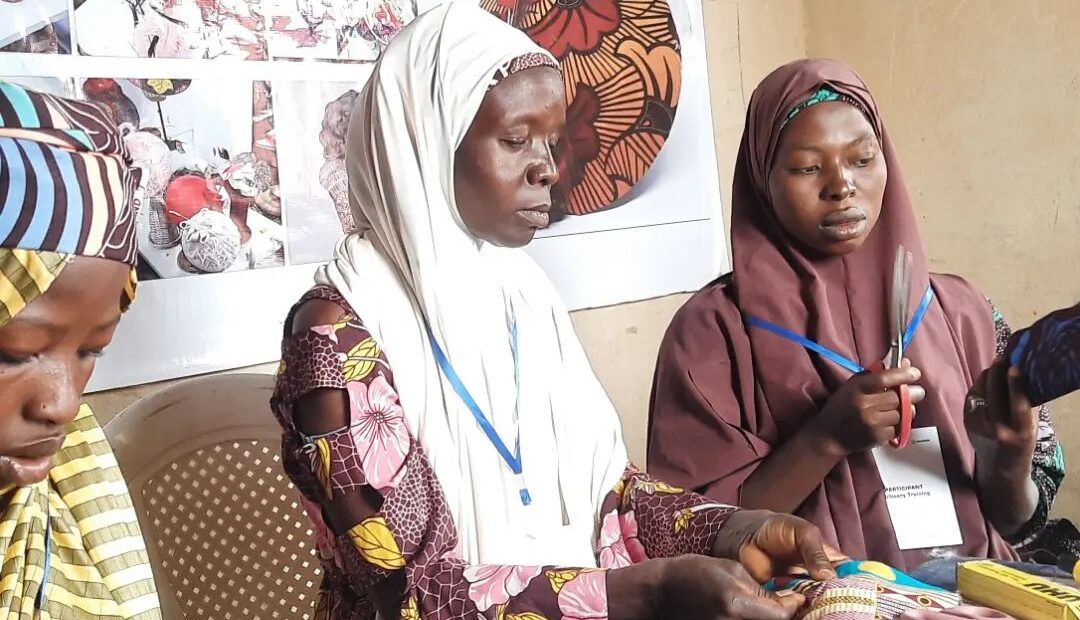
By Daniel Adaji
Key Points
-
Insecurity and Unemployment is rising in Nigeria
-
At least 3.0 million Nigerians (as of November 2021) have been displaced out of their homes, especially in parts of North-East
-
IDPs lack good health care facilities
-
TSWINI trained and empowered over 1,500 women in Nigeria
-
Many beneficiaries now own their houses
-
There is need to replicate the interventions in other IDP camps in the country
Zara Musa is a beneficiary of the The Skilled Women Initiative (TSWINI) training and impact fund. She is a very enterprising woman. Through her dedication and commitment in acquiring skills in both tailoring and crocheting, she succeeded when the TSWINI visit Kabusa in the Federal Capital Territory (FCT) to train some people in her community.
Musa, who had previously acquired several skills, decided to focus on baby crochet dresses and uniforms of various sorts.
TSWINI recorded that, in November 2021, she was one of the beneficiaries hosted by the GIZ in Lagos to talk about her business. She produces accessories for high brands like CiiE luxuries, cuddles and co and many more.
“Through TSWINI, Zara now owns a clothing company, Zafat Fa Pepar, which is committed to creating beautiful baby clothes, uniforms and accessories.
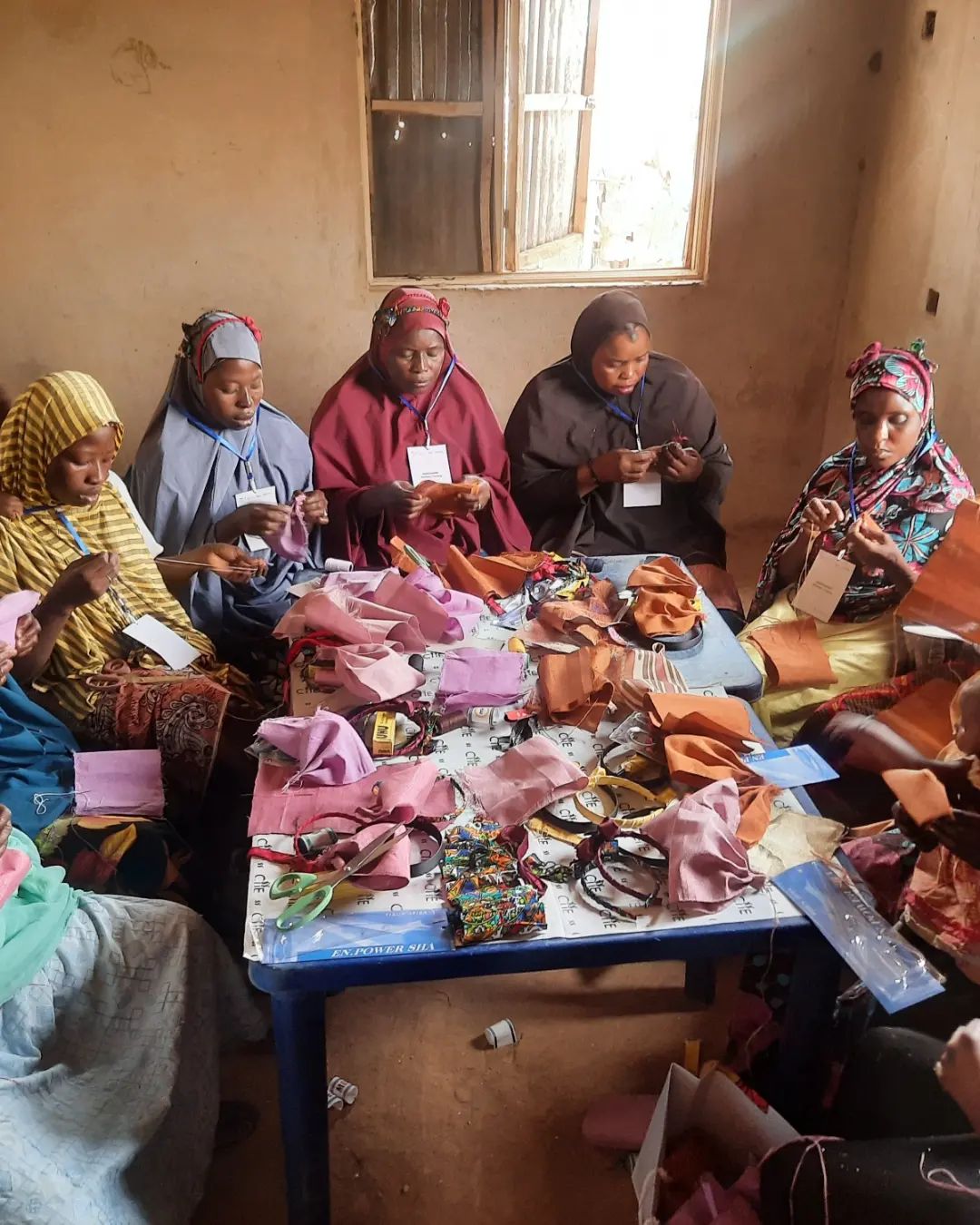
Some of the beneficiaries learning some skills. Photocredit: TSWINI
In Zara’s voice, “I have benefited a lot from TSWINI. I am sewing now; I have my shop and do business at home. I go to the shop like three times a week and I sell some clothes online and some shoes at home. I was not aware of these skills until the foundation introduced me to them. Now I can do a whole lot with the skills I have acquired from them,” she said.
Hafsat Mohammed is also one of the beneficiaries of the intervention at the Durumi Internally Displaced Persons (IDPs) camp in Abuja. According to her, she would like to set up her businesses outside the IDP upon the conclusion of the training.
“I have learned a lot here, I learned tailoring and I would like to set up my business outside, not inside the IDP, may be somewhere around Maraba. The training has helped me to gain skills that would enable me to earn money and take care of myself. I am confident that with the skills acquired, I will be able to contribute my part to taking care of the family,” she said.

Some of the women acquiring skills at the TSWINI, Lugbe, Abuja centre. Photocredit: TSWINI
Prior to the intervention, many women and girls in Durumi Area 1 IDP camp had no basic skills to earn income. They relied on handouts from well-meaning individuals and organisations. Most of the women who are now empowered had been in the camp for between 5 to 7 years because they could not afford to secure accommodation outside.
Access to quality health care was also a challenge as the IDP camp lacked basic healthcare facilities, and the IDPs therein could not cater for their hospital bills.
I didn’t know anything about skill acquisition until God brought these people to us
Many of the women and girls take to hawking sachet water in order to earn a living. This practice exposes girls at the temporary camp to potential harm and impedes their education.
Hajia Iliatu Ayuba, is also a beneficiary and women leader in the camp. She asserted that the situation in the camp before the intervention was pitiable.
“Before the training and empowerment programme, our women and girls had nothing to do to make money. Infact, they could not take care of themselves unless help came from outside. But we thank God for TSWINI because when they came and saw our situations, they helped us,” she said.
Most of the beneficiaries had at one time in their stay at the IDP lost hope of a better life within or outside the facility.
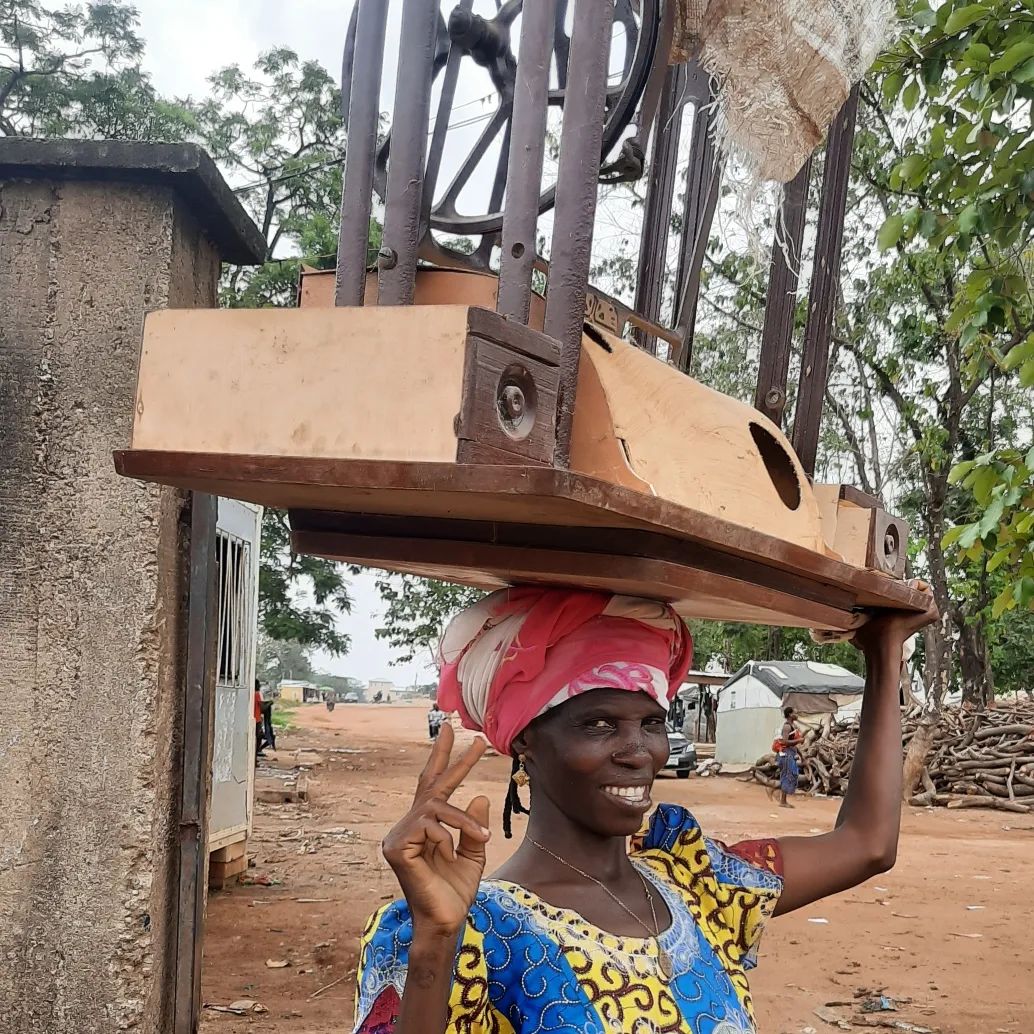
One of the beneficiaries with her sewing machine at the Durumi Abuja Area One Camp. Photocredit: TSWINI
However, Hope was restored when the TSWINI foundation embarked on a massive training and empowerment programme for women and girls at the IDP camp among others in Abuja.
On how she had benefited from the initiative, Iliatu said she now makes clothes for herself and her family. She also makes some money from the proceeds as a tailor to take care of her family.
“I didn’t know anything about skill acquisition until God brought these people to us. I can now sew. Even the cloth I am wearing now is a product of my hand work. I can also take care of some basic needs in my family,” she said.
The Director of the foundation Chisom Ihebuzo Nwankwo in an interview explained the challenges they face in reaching out to the women and girls is the mindset.
“You need to talk to them to know that this is not where they should be. They need to understand that we need to work to earn money and not have to wait for people to come and give them small handouts,” she said.
She said they look forward to more people coming to support what they are doing.
“We need more people to come and support us. This type of intervention needs to be replicated in all the IDPs. We need small businesses to say “I need five tailors” and they’ll come to the IDP and hire women who can sew,” she said.
In the last 20 years in Nigeria, insecurity, especially the Boko Haram insurgency, has displaced many women and children from their homes in several parts of the country, especially the Northern part of the country.
In Nigeria, Boko Haram and other non-state armed groups as well as clashes between herders and farmers have pushed some 3.0 million Nigerians (as of November 2021) out of their homes, especially in parts of North-East Nigeria and the country’s Middle Belt, but increasingly also in North-West Nigeria.
Many of these women and children escape to safer havens in less troubled parts of the country or states of residence and are either lodged in government or individual facilities.
Most times, the persons now referred to as IDPs in camps, must have lost the sources of their livelihood, and are at the mercy of alm givers, the government and well-meaning individuals.

Photo credit: TSWINI
In Nigeria, female unemployment was reported at 5.653 % in 2021, according to the World Bank collection of development indicators, compiled from officially recognized sources. Nigeria – Unemployment, female – actual values, historical data, forecasts and projections were sourced from the World Bank in June of 2023.
Due to the rising unemployment in the country, many, especially the unskilled ones, find it difficult to get jobs and earn a living.
Many Non-Government Organisations, NGOs and individuals have attempted to help these underserved communities of the years in the country in their different thematic areas.
TSWINI, with support from its partner organisations, train women in tailoring, bead bag making and hats, fascinators among many others.
The women leader of the Durumi IDP camp, Iliatu Ayuba, applauded TSWINI for the intervention, stating that the economic life of the women had improved since the intervention started in their camp.
We provide cash for work through the Kwando marketplace
“We thank God for bringing TSWINI to us. As you can see here in the IDP, most people fend for themselves and getting money is usually difficult especially for IDP women and girls. They have been able to train many women and girls here that can now settle their bills in a little way,” she said.
She added that the initiative was timely as the hike in food and other commodities had made life unbearable for IDPs.
“You see, the price of food is high, even getting drugs now is very expensive but we thank God that at least many of our women here can support themselves and children with what they earn from sales of their craft,” she said.
Iliatu further noted that many of the women who benefited from the skills now support their families; own houses and moved out of the camp.
“Many of the women have moved from the IDP, they have their houses and some rent because of the sewing skills they acquired and are making use of. They teach us and give us equipment. They even teach our children. Even the clothes I’m wearing now, I sewed it myself,” she said.
Meanwhile, the director of the NGO explained that intervention was part of their commitment to pursuing the Sustainable Development Goals in the country and ensuring equal opportunities for all.
Speaking through her Personal Assistant, Praise Okoro, the director said the foundation had a mandate to grant the IDPs access to the marketplace, financial inclusion, skill up and so many other things.
The Intervention focuses on women and girls in IDPs in the FCT and some states in the country.
“We provide cash for work through the Kwando marketplace. One of our beneficiaries Zara was awarded a skill-up fund through support from the GIZ, one of our donor agencies.
“Other activities include; confectionery; cake baking, upcycling production, tailoring. So far, we have trained 30 girls through the Spain embassy and the Earth for Humanity programme.
Many of the women have moved from the IDP, they have their houses and some rent because of the sewing skills they acquired and are making use of
“We seek to reduce the number of young persons in displacement by 2030, fostering cooperation among beneficiaries and reintegration. Other training includes: Agric. technology, hydroponics, clean technology, shoes and bag making, media photography, coating technology etc.
“Through the Kwando marketplace, buyers are drawn from all walks of life to patronize the IDPs and encourage them to scale up their production.
“The organisation’s thematic areas include; Kwando projects, Vocational skills hub, Cooperative, Trade fair, Vulnerability dialogue, we also engage in vulnerability dialogue.
“The organization partners with UNHCR. TSWINI works to change the mindset of the IDPs and reintegrate them into the society.
The director further said getting more and reliable partners to donate to the foundation had been a challenge, while getting data on the number of IDPs and refugees in the country had also been a limitation to how far their intervention could go. So far the foundation has trained over 1,500 women in Abuja, Benue and Nasarawa States.
This story has been made possible by Nigeria Health Watch with support from the Solutions Journalism Network, a nonprofit organization dedicated to rigorous and compelling reporting about responses to social problems.
First Published on BONews
The Insight Report
Nigeria Coverage

